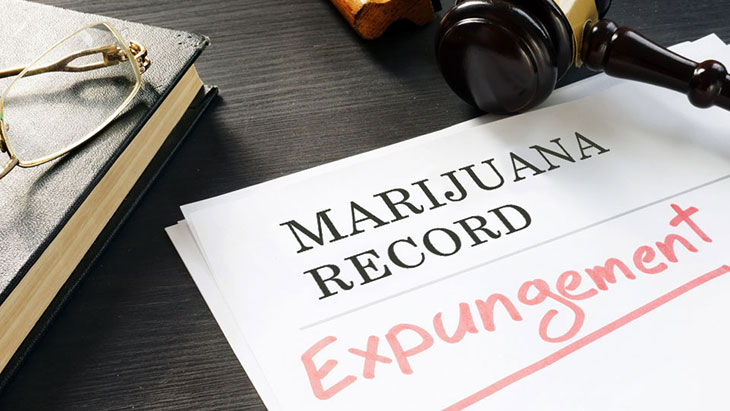
Representatives Troy Carter (D-LA) and Rodney Davis (R-IL) have introduced legislation seeking to facilitate the expungement of criminal records for those convicted of certain federal marijuana violations.
The legislation, known as the Marijuana Misdemeanor Expungement Act, states, “Not later than one year after the date of the enactment of this section, the Chief Justice of the United States shall promulgate procedures or practices for the review, expungement, sealing, sequester, and redaction of official records … [specific to any] federal misdemeanor, petty offense, infraction, or civil penalty involving marijuana, including marijuana-related drug paraphernalia, in which the conduct constituting the offense did not involve the use, attempted use, or threatened use of physical force against the person or property of another.”
It adds, “At any point after the date of enactment of this section, any individual with an official record for a [qualifying] event may file a motion for expungement in the court for the Federal district in which the arrest, legal proceedings, and any legal results or consequences was obtained.” Those filing petitions will not incur any fees for doing so. After an order for expungement is issued, the court may also refer the case or petition to the President of the United States of America for a pardon referral.
Representative Carter said that passage of the Act will “restore justice” to those “who have suffered inordinate collateral consequences associated with” the arrest and conviction associated with certain low-level marijuana-related charges.
NORML’s Political Director Morgan Fox added: “It is increasingly clear to policymakers that saddling people with the lifelong collateral consequences of even a low-level marijuana arrest or conviction is unjust and provides no legitimate benefit to society. Facilitating the expungement of minor federal marijuana offenses is a necessary step that will allow impacted people to reach their full potential.”
Several comprehensive reform bills pending in Congress, including The MORE Act, The States Reform Act, and The Cannabis Administration and Opportunity Act, include provisions providing expungement and resenting relief to those convicted at the federal level of certain marijuana-related crimes. In addition, separate legislation, The Harnessing Opportunities by Pursuing Expungement (HOPE) Act, seeks to appropriate $20 million to the US Attorney General for the purposes of financially assisting states and local governments with the process of reviewing and expunging cannabis convictions.
More than 20 states have enacted laws explicitly permitting or facilitating the process of having select marijuana convictions expunged, vacated, otherwise set aside, or sealed from public view. In the past few years, state and local officials nationwide have moved to either expunge or seal the records of over two million people with prior state-specific cannabis convictions.
A summary of state laws providing for the expungement of marijuana convictions is available from NORML here.
Related
Medical Disclaimer:
The information provided in these blog posts is intended for general informational and educational purposes only. It is not a substitute for professional medical advice, diagnosis, or treatment. Always seek the advice of your physician or other qualified healthcare provider with any questions you may have regarding a medical condition. The use of any information provided in these blog posts is solely at your own risk. The authors and the website do not recommend or endorse any specific products, treatments, or procedures mentioned. Reliance on any information in these blog posts is solely at your own discretion.






